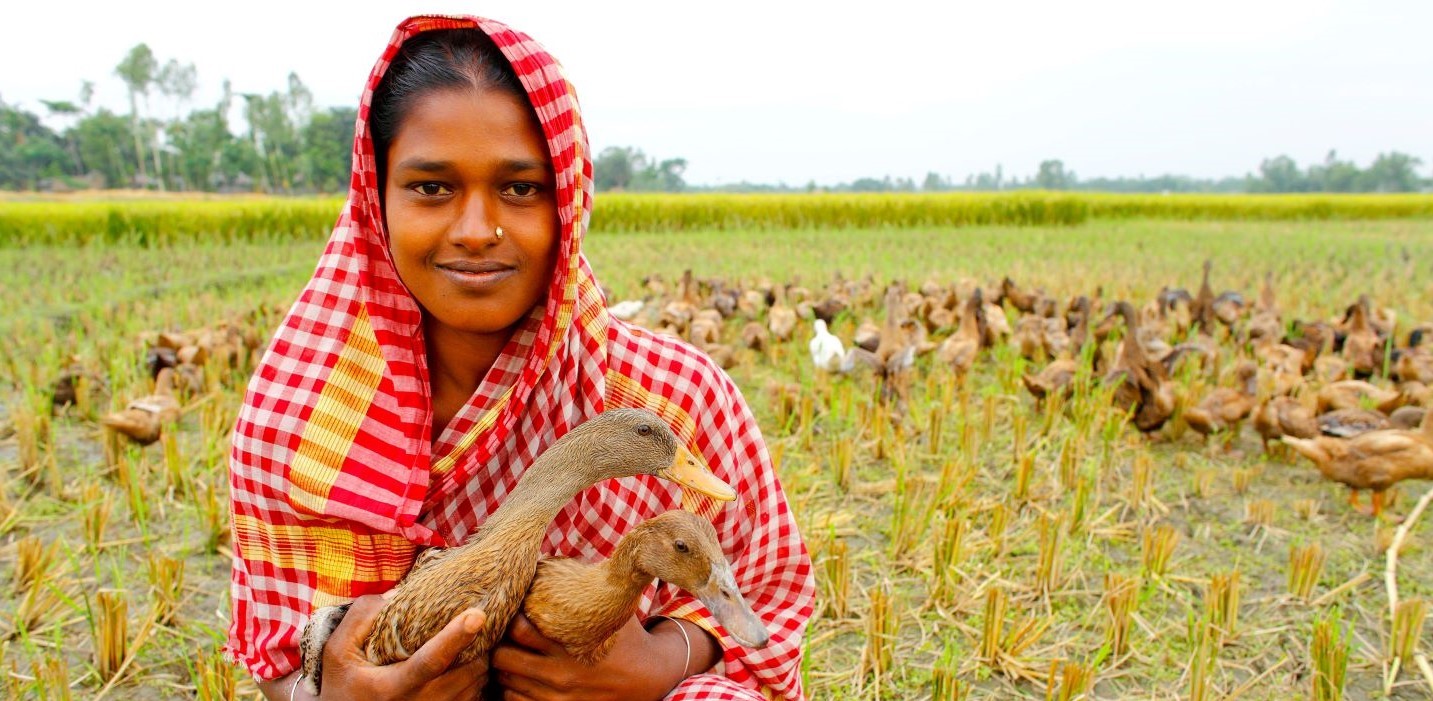Preventing the next pandemic by integrating human, animal and environmental health
IFAD Asset Request Portlet
Asset Publisher
Preventing the next pandemic by integrating human, animal and environmental health
Estimated reading time: 3 minutes
In the two years since COVID-19 was officially declared a pandemic, we have witnessed rates of illness and loss of life not seen in over a century. Yet SARS-CoV-2 is only the most recent example of a pathogen that made the leap from animals to humans – more than 60 per cent of known infectious diseases emerged from domestic or wild animals.
The COVID-19 pandemic has made it clearer than ever that human health is not just a matter of providing people with medical care. To avoid future pandemics, we need to shift from thinking in terms of individual diseases to tackling the systems in which diseases emerge. In effect, we need to recognize that the health and well-being of people, animals, plants and ecosystems must be addressed as a dynamic whole.
The OneHealth approach
OneHealth is an integrated approach that brings together medical, veterinary, environmental, socioeconomic and communication expertise to design and implement programmes that achieve better outcomes in public health. It underpins how IFAD designs its investments in animal health and welfare.
In practical terms, OneHealth means strengthening human and veterinary health services and establishing ways for them to coordinate, collaborate and communicate. Its goals are to help people and animals be healthier, prevent misuse of antimicrobial drugs, and detect and manage zoonotic diseases before they can jump to people.
For instance, in Brazil’s Bahia region, an IFAD-supported initiative is helping communities sustainably manage the delicate ecosystem and conserve soil and water resources while improving the nutrition available to their goats. This is done through rangeland management techniques, as well as sustainable backyard gardens that produce nutritious food and fodder.
Before the pandemic, IFAD and FAO had already been working with national governments to mainstream OneHealth approaches at policy and regulatory levels; collect and use high-quality data to prevent, prepare for, detect, and respond to zoonotic diseases; and leverage national action planning and programming to take a systems-based approach. The emergence of COVID-19 has made this work even more urgent.
Preventing antimicrobial resistance
Antibiotics and other antimicrobials have saved millions of human and animal lives. Yet, due to the remorseless logic of evolution, the overuse of antimicrobials increases the likelihood that microbes will become resistant. Indeed, antibiotic-resistant bacterial infections already kill 700,000 people annually, a figure that could rise to 10 million deaths a year by 2050 if action is not taken.
Nevertheless, antimicrobial drugs continue to be misused and overused worldwide – and the agriculture sector is no exception. Antimicrobial use in farmed animals is growing fastest in low-income countries to compensate for poor husbandry practices, and overuse will increase as livestock production intensifies. As antimicrobial resistance grows, untreatable infections may arise in animals, reducing output, livelihoods and food security, and, potentially, jumping to humans.
IFAD initiatives guided by OneHealth approaches help address this through investments in veterinary services, educating small-scale farmers about best practices in caring for healthy livestock and safeguarding animal welfare, and protecting the environment. In Nepal, for instance, an IFAD-supported initiative has trained animal health workers and extended vaccination campaigns to help combat zoonotic diseases. These efforts helped reduce reliance on antimicrobials and increase goat productivity by 34 per cent.
Healthy livestock, healthy communities
Endemic zoonotic diseases, such as brucellosis, rabies and leptospirosis, are frequently transmitted from animals to humans, causing illness and death, keeping communities in poverty, and burdening national health and care systems. Rural dwellers are often the most vulnerable, as they are not easily reached by health systems. This is especially concerning for rural women, who rear most of the livestock in the developing world and therefore bear the greatest burden of zoonotic disease.
Integrated services that address the health of both humans and animals can reach even remote rural dwellers and mobile pastoralists and educate them on appropriate care and disease surveillance. And through these and other OneHealth approaches, the women and men tending to the developing world’s livestock have the tools to effectively detect, prevent, and stop diseases.
Strengthening systems
COVID-19 will probably not be the last infectious disease to leap from animals to humans. We can, however, act to prevent future pandemics through transformational policymaking rooted in science and sustained investments at local, national and global levels.
This entails strengthening our food and health systems, improving animal and human disease surveillance and diagnostics, and ensuring that all communities are prepared for and able to respond to emergencies.
The OneHealth approach offers a way to reconceptualize how our food systems work and to maintain livestock in a way that is sustainable and humane, protects the health of animals and humans alike, and provides adequate nutrition, food security and livelihoods to the world’s most impoverished people. Protecting our small-scale producers and moving the conversation on healthy livestock forward is more important than ever as we convene for the Food Systems Summit 2021.
Publication date: 23 September 2021